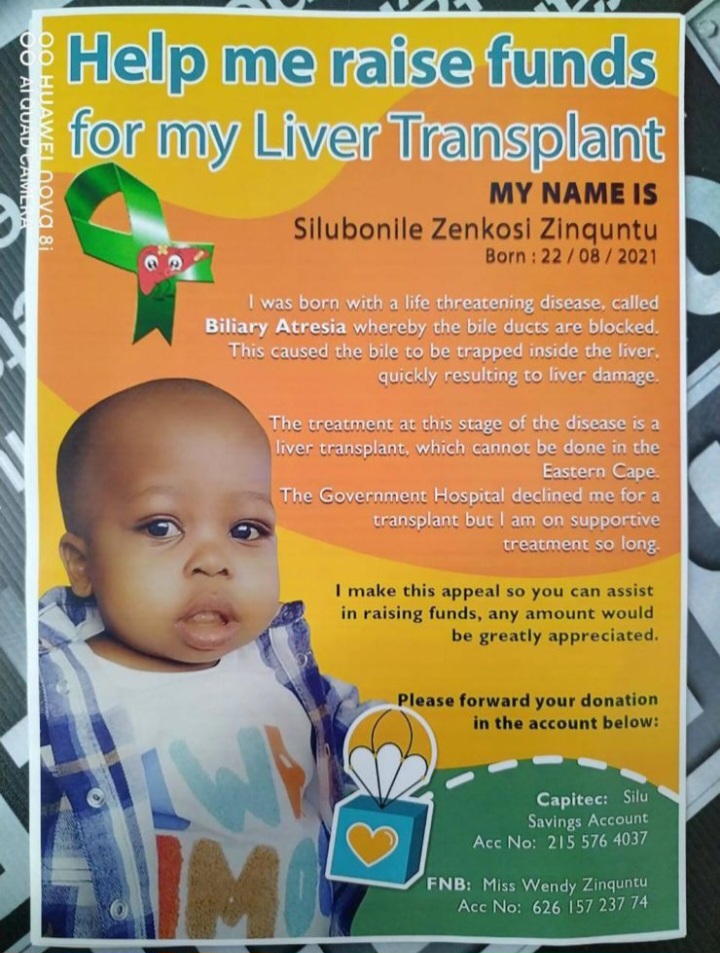By Fahdia Msaka
A Makhanda mother has been left asking whether not having medical aid might turn out to be a death sentence for her son. Silubonile Zinquntu is only two years old and has lived with Biliary atresia from the age of two months. Biliary atresia is a condition in infants in which the bile ducts outside and inside the liver are scarred and blocked, causing bile to build up in the liver instead of flowing into the intestine. This damages the liver, causing scarring, loss of liver tissue and function, and cirrhosis.
Silubonile’s mother, Wendy Ziquntu, describes the symptoms her son has as “yellowish eyes, yellowish skin, and a big tummy. He is two years old, but he cannot walk because of his tummy. I think his liver is expanding,” she told Grocott’s Mail.
She says doctors offered to perform the Kasai procedure (also known as a hepatoportoenterostomy) on Silubonile. This would have involved removing the damaged bile ducts outside his liver, and creating a path of bile flow from his liver into his intestine. After this procedure, infants are usually hospitalized for seven to 10 days to heal. Long-term antibiotic therapy is given to reduce the risk of infection. Additional medications may be used to promote bile flow and help aid the success of the surgery.
The Kasai procedure is successful in 60 to 85 percent of the patients but is not a cure for biliary atresia. It does allow babies to grow and have good health for several, sometimes for many years. About 25% of patients who undergo a Kasai procedure do not need a liver transplant.
However, according to a 2021 study by Francisca van de Schyff from the Department of Transplantation, Wits Donald Gordon Medical Center at the University of Witwatersrand, Johannesburg, South Africa, children with Biliary atresia have poor outcomes in the public health sector in South Africa. This study concluded that early referral to units offering expert intervention at all stages of care, including transplantation, would offer the best outcomes.
Wendy Ziquntu says because she did not believe the Kasai procedure would be a guaranteed success, she requested a liver transplant when she saw her son’s deteriorating condition. However, the hospital declined her request, and she feels she has not received a proper explanation. A letter from the hospital seen by Grocott’s Mail says that Silubonile “does not qualify for a transplant” but does not state why.
Wendy refused to give up on her child. She decided to raise funds for a liver transplant to be done privately, which a private hospital has told her costs R700 000. With the help of local printing company Dupliprint, she created the poster on this page to raise funds. Wendy is hoping to be able to raise the money to save Silubonile’s life and believes that if she had medical aid, the government hospital would have carried out a liver transplant on her son.


